Introduction
The car industry is a changing and important field that has a significant impact on the world economy today. With the emergence of cars and technological progress the sector is experiencing notable shifts and encountering different obstacles. From the effects of the semiconductor shortage to the shift, toward self driving cars and sharing services the car industry continues to evolve constantly.
Despite facing these obstacles head ont has been inspiring to see how well the industry has adapted. Thrivedthis piece delves into examining market trendsprofitability considerationscompany valuation techniquesgrowth tacticsoperational efficiency improvements,g branding and marketing strategies financial management strategies and business exit plans for automotive ventures.Whether you are an investor,a purchaser or a business operator in the sector having insights, into these crucial areas can equip you to navigate the ever evolving landscape and position yourself for success.
Lets delve into and uncover the tactics and knowledge that can help you succeed in this field.
Understanding the Automotive Industry
The automotive sector is constantly evolving. Plays a crucial role in the worldwide economy with plenty of chances for smart investors to explore and benefit from its growth potential. The sector includes businesses like car wash facilities, repair shops and dealerships that are vital components, in the intricate system that drives the global transportation network. The electric vehicle sector has experienced growth thanks to pioneers such as Rivian who aim to achieve net zero emissions by 2040 and companies like Graymatter Robotics that leverage AI technology for innovation, in the field.
In the past few years alone we've witnessed how the automotive sector has had its fair share of difficulties to deal with. Just look at the whole 'Chipdemic' situation as a prime example! It truly demonstrates the importance of semiconductors, for maintaining the efficient operation of our vehicles in today's interconnected world where everything is linked through technology. But with all these challenges thrown their way the automotive industry has managed to bounce back and show some impressive resilience. The drive toward using power in vehicles has been consistent and intense as designers have been reinventing the appearance of cars to suit the requirements of electric models by introducing features like the 'non grille’ front grille – a development that has captivated automotive design specialists such, as Aysar Ghassan.
Furthermore dealerships are making profits in the current market environment due to increased demand despite economic challenges and high inflation rates. This resilience demonstrates the sector's capability to be innovative and adaptable in order to sustain expansion. The automotive sector is experiencing changes as autonomous vehicles and ride sharing services transform transportation practices. It serves as a symbol of progress and highlights humanity's continuous drive, for improvement and effectiveness.
Market Analysis and Segmentation
When examining the acquisition of companies that are available for purchase, it is vital to understand the intricacies of the industry—not only for guidance but also out of necessity. It is important to explore the operations of the sector and concentrate on the rapid growth of electric vehicles in areas such as Asia. China emerges as a frontrunner in this domain both as a consumer and a producer. The complex technological elements of their automobiles heavily depend on semiconductor technology for functions such as battery management and power electronics systems. Autonomous and interconnected vehicles are having a substantial impact on the field, presenting both opportunities and challenges in equal measure.
Electric cars aren't the exciting trend in sight these days, in the US; connected vehicles are also gaining traction thanks to a mix of tech leaders and creative car makers and startups collaborating together in an exciting way thats driving innovation in the field of connected vehicle technologies as companies pour resources into research and development to keep up with the competition.
Transformations in consumer preferences are evident in trends as young buyers are considering options like vehicle subscriptions instead of traditional ownership models. The automotive sector is undergoing changes due to sustainability efforts evolving government policies and the worldwide emphasis, on reducing carbon emissions.
Considering these alterations in the landscape of the sector, potential buyers should conduct a combination of extensive and focused investigations. This involves engaging with customers through surveys and questionnaires, gathering information from outlets, and keeping abreast of local market trends. Whether it's understanding the impact of the 'Chipocalypse' on supply chains or identifying regions ready for expansion, a comprehensive evaluation of the market will assist you in tailoring your strategies successfully and setting yourself apart in this competitive field.
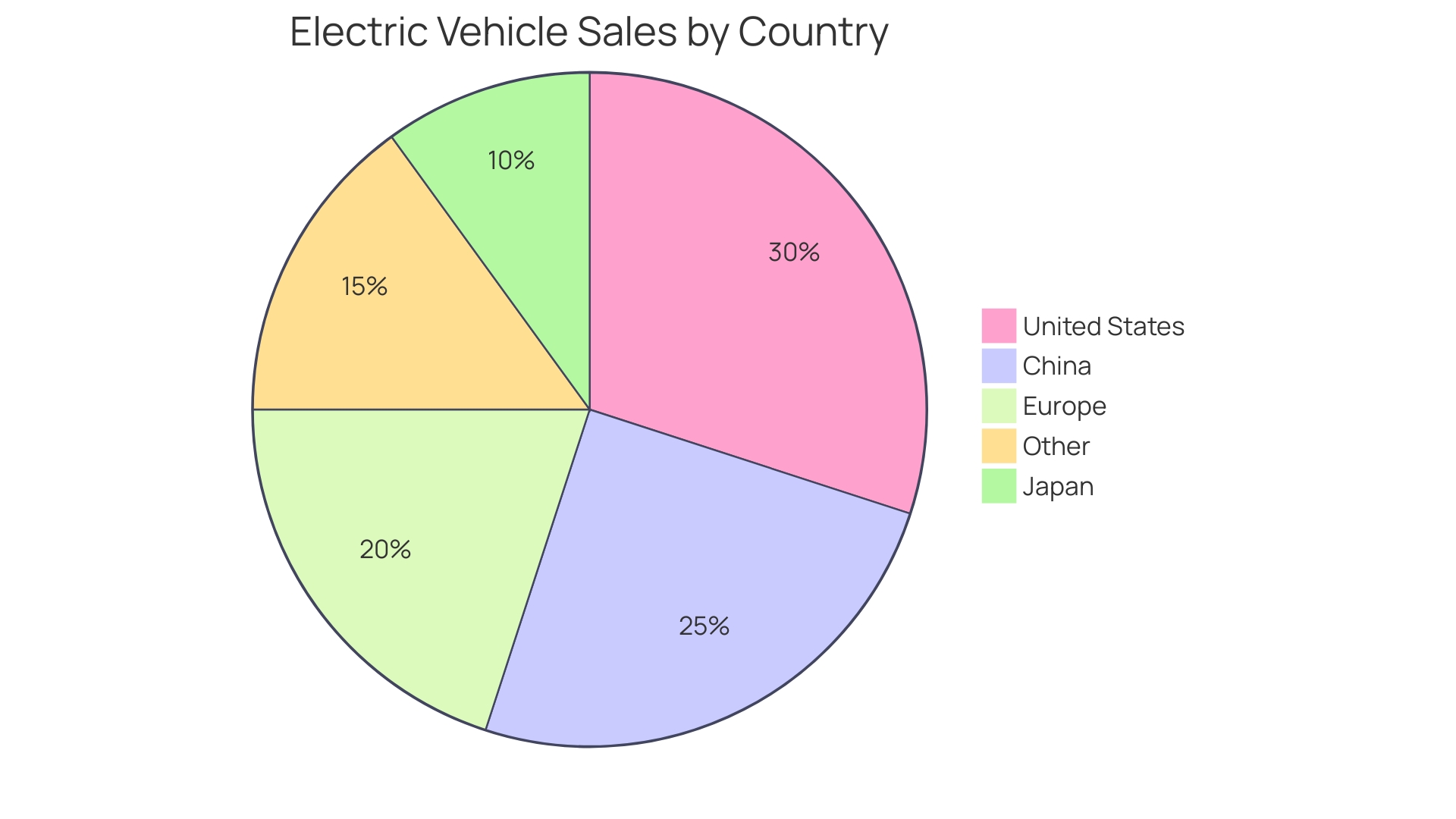
Profitability and Key Factors
When contemplating the purchase of a business like car washes or auto repair shops for sale or even dealerships on the current business landscape as a potential buyer or investor out there in this business world. It's not just, about money matters but also about making a smart and well thought out strategic move that demands a good grasp of the industry's dynamics and prevailing trends at play right now in this competitive landscape we find ourselves navigating through daily life. A comprehensive analysis of the company's status as indicated in its financial records can offer valuable insights into the potential for attaining a profitable result in future economic circumstances. Furthermore, monitoring customer satisfaction levels and the organization's reputation, within the local community can be dependable indicators of its future success.
The automotive sector is heavily impacted by market trends like the global shortage of semiconductor chips known as the 'Chipdemic'. Changes in consumer preferences towards vehicles and the increasing popularity of ride sharing services and autonomous vehicles are shaping demand in the sector significantly.It's crucial for prospective buyers to align their business strategies, with these evolving trends. The change, in the field is evident as specialists emphasize the phase that the automotive sector finds itself in while attempting to adapt to the evolving technological and economic landscape. With these obstacles ahead of them, the automotive sector has shown its strength as dealerships have recorded significant profits lately; however this uptrend might face challenges from economic downturns and inflationary forces.
Fully grasping the entirety of these factors and how they influence the financial success of car companies can empower consumers to make informed choices. By assimilating this information and staying updated on changes in the automotive market, consumers position themselves to take advantage of the possibilities.
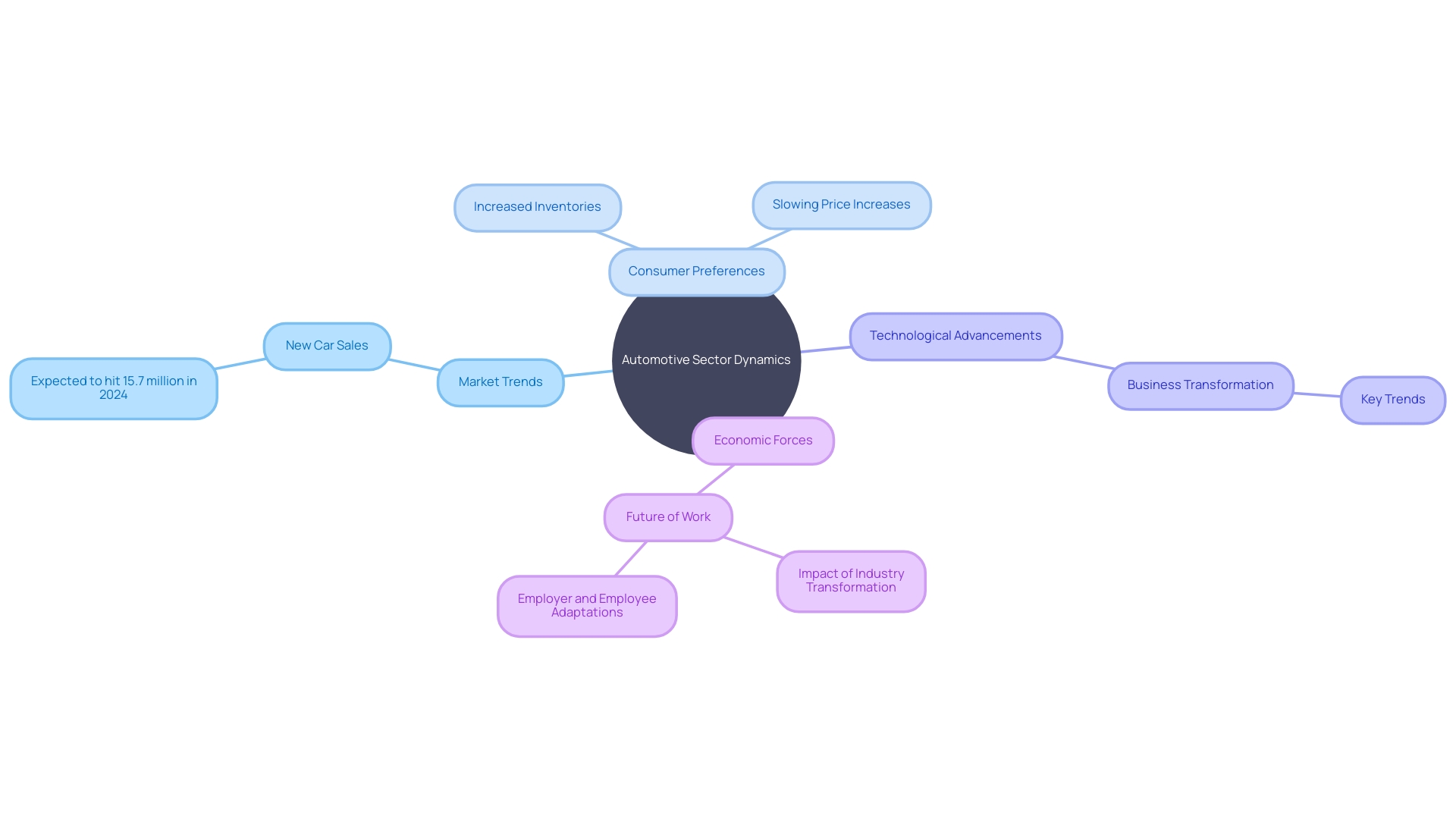
Valuing an Automotive Shop
Assessing the worth of a car repair shop goes beyond financial figures and involves a complex evaluation that mirrors the ever changing landscape of the automotive industry today. Considering advancements in technology and changes in the market—such as the emergence of self-driving cars and electric vehicles in addition to the impact of ride sharing platforms—a thorough evaluation of a company in this industry requires a sophisticated strategy. While traditional valuation methods like market analysis and income assessment continue to be foundations for valuation practices, in this sector it is essential to adapt these tools to accommodate the dynamic nature of today's automotive ecosystem. The impact of the 'Chipocalypse" and worldwide supply chain hurdles underscore the need to evaluate a stores ability to handle shortages and changes in demand effectively. To navigate through this terrain successfully it's crucial to enlist a seasoned evaluator or intermediary knowledgeable in the automotive field. Their expertise is crucial for an assessment that takes into consideration the shops financial stability assets, on hand inventory levels and the intangible asset of goodwill. Their perspective can facilitate a negotiation process that results in a valuation reflecting the shops potential in an industry undergoing rapid transformation.
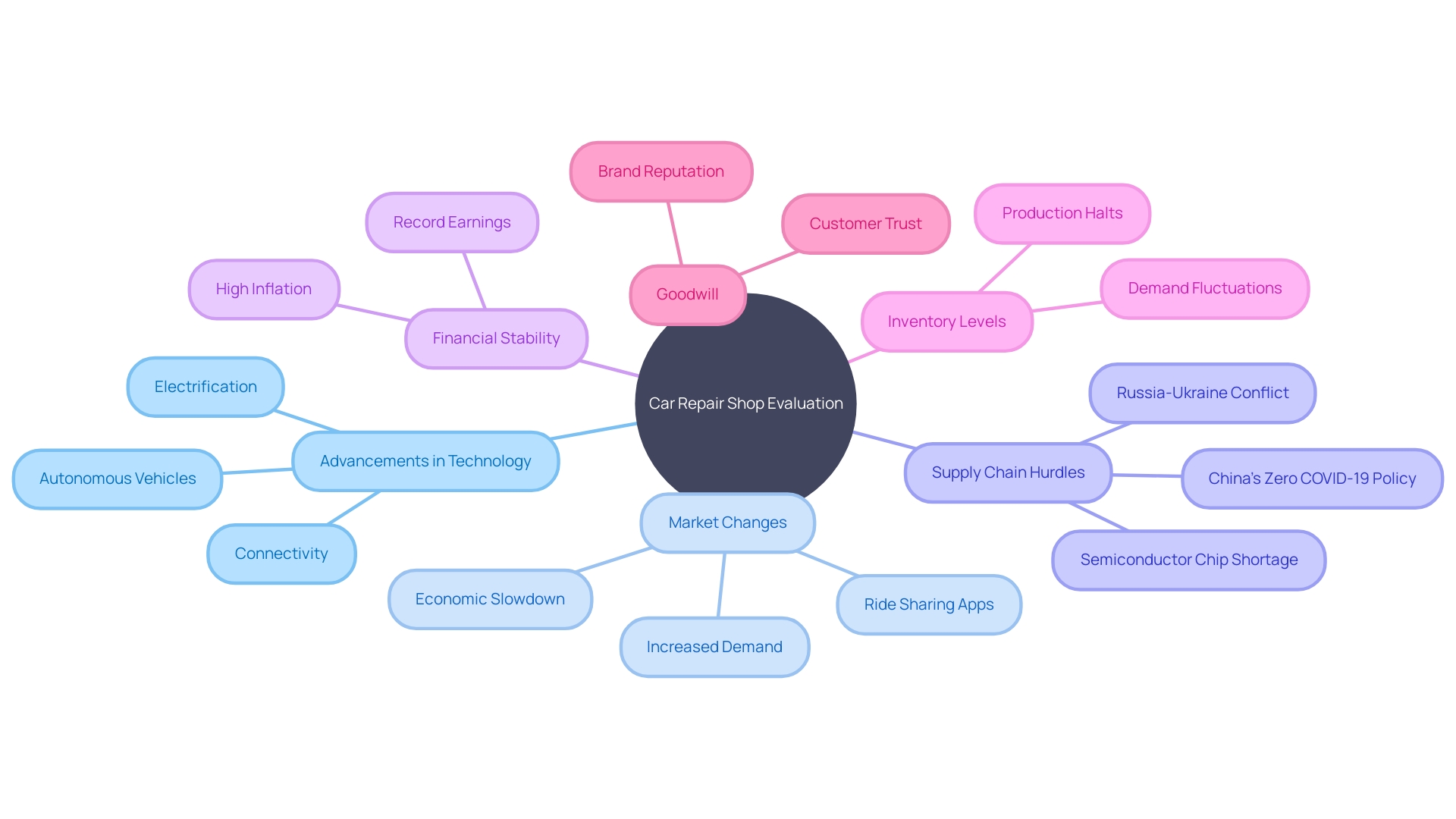
Growth Strategies for Automotive Businesses
Obtaining a company in the industry such as a car wash or auto repair shop necessitates careful planning for progress to thrive successfully. The key lies in embracing the paced advancements in vehicle technology at present. The shift towards vehicles (EVs), from traditional internal combustion engines is a significant transformation that necessitates incorporating EV related services to maintain a competitive edge. One example is how car dealers could improve their operations by showcasing a variety of vehicles and offering charging options to meet the growing needs of the market.
The automotive sector is shifting towards software defined vehicles more these days which emphasizes the significance for companies to distinguish themselves with state-of-the-art driver assistance technologies and in car entertainment systems in order to keep up with the changing trends, in the field.
Understanding the importance of working in the automotive industry is crucial as well. A track record of success has been associated with partnerships and current trends highlight this even further. By forming relationships with suppliers who specialize in EV components and software solutions, organizations can foster innovation. Enhance cost efficiency.
Taking into account the impacts is another crucial aspect to consider when it comes to sustainability in practices like those demonstrated by Rivian striving for zero net emissions; this not only appeals to environmentally conscious customers but also supports a more sustainable approach.
It's essential to conduct research on consumer behavior to identify trends that might significantly affect your strategy! For instance. If there's an uptick in the demand, for electric tools seen on the horizon. An enterprise vending automotive tools could thrive by providing high-quality and in-demand equipment to tap into this burgeoning industry projected to reach $42 billion by 2030!
It is important to express a vision for the future that recognizes the uncertainties and possible changes in the industry. Foresighted declarations drawn from patterns,current situations and projected future progressions are useful, in shaping strategic decisions though they must be handled with care to allow for adjustments based on new insights that emerge.
In conclusion a comprehensive approach to expanding an automotive enterprise should include embracing new technologies, forming strong partnerships, prioritizing environmental responsibility, conducting thorough market analysis, and adopting a proactive approach. By taking these steps entrepreneurs are not getting ready for the current situation but also setting the stage for a prosperous and adaptable future, in the ever changing automotive industry.
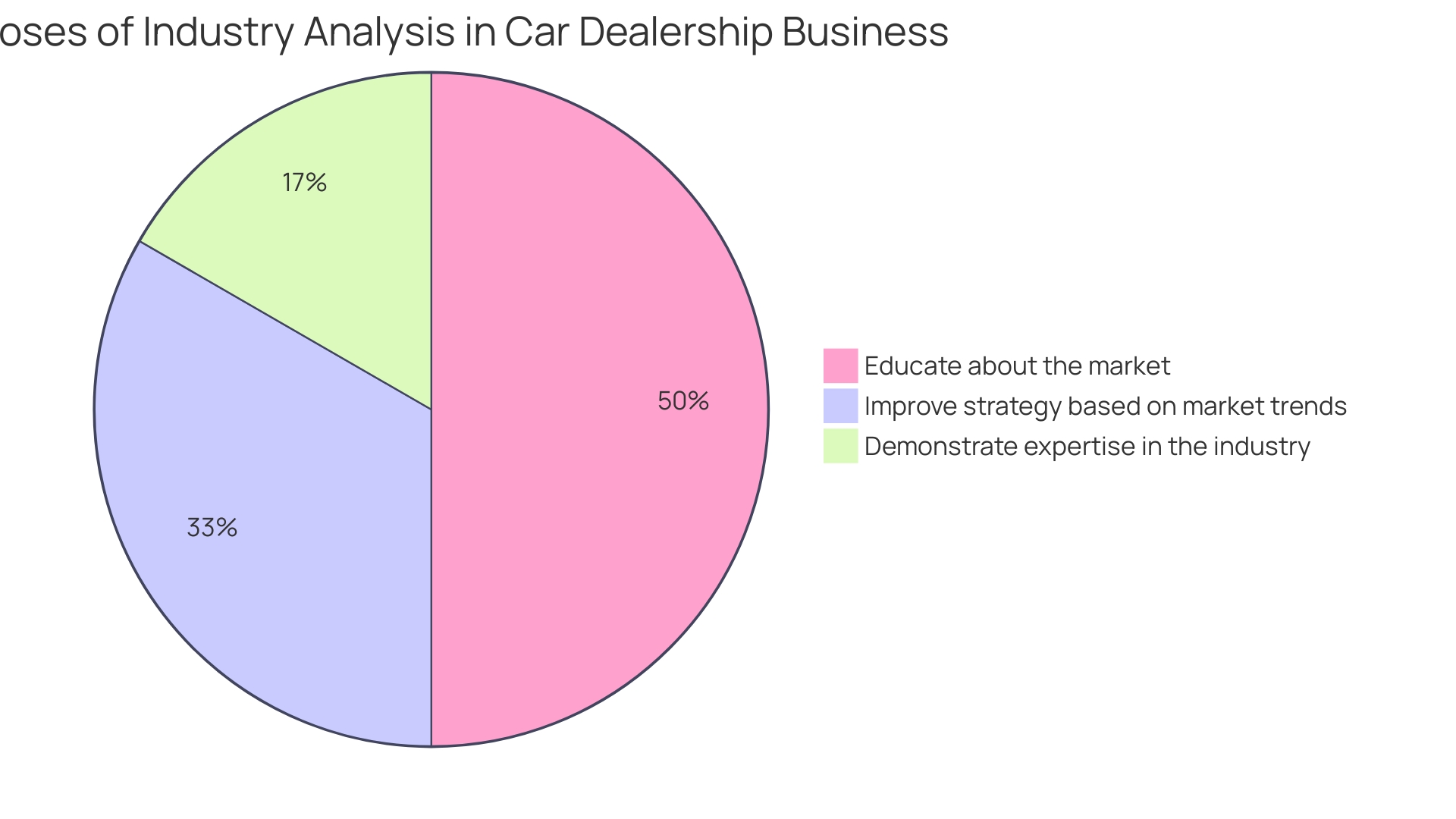
Operational Optimization for Automotive Businesses
Operating enterprises like car washes and auto repair shops and dealerships heavily depend on operational efficiency to generate profits and maintain customer satisfaction. To succeed in this endeavor business owners need to optimize their operations manage inventory efficiently maintain quality standards and adopt the latest technology and tools. The move towards vehicles (EVs) in the industry necessitates a reassessment of inventory as part of net working capital (NWC) which plays a crucial role in maximizing free cash flow efficiency. Implementing transformations like product platform consolidation and improving supply chain logistics and sales planning can result in smoother operational processes. For example streamlining product diversity decreases the necessity, for parts and stock keeping units (SKUs) leading to lower inventory levels and related expenses. In the electric vehicle sector and beyond companies such as Rivian are committed to sustainability and efficiency aiming for zero emissions by 2040 Companies like Polestar also emphasize the importance of forming partnerships maintaining a resilient supply chain and effectively managing growth in the evolving automotive landscape where the shift from combustion engines to electric propulsion opens up chances, for enhancing engineering and reducing inventory levels Monitoring performance metrics (known as KPIs) prioritizing customer loyalty efforts and seizing market chances in the expanding car rental sector are tactics that play a vital role in a company's financial health and operational efficiency improvement. By doing this efficiently in automotive enterprises, it is possible to improve efficiency levels while cutting down expenses and delivering outstanding service to customers.
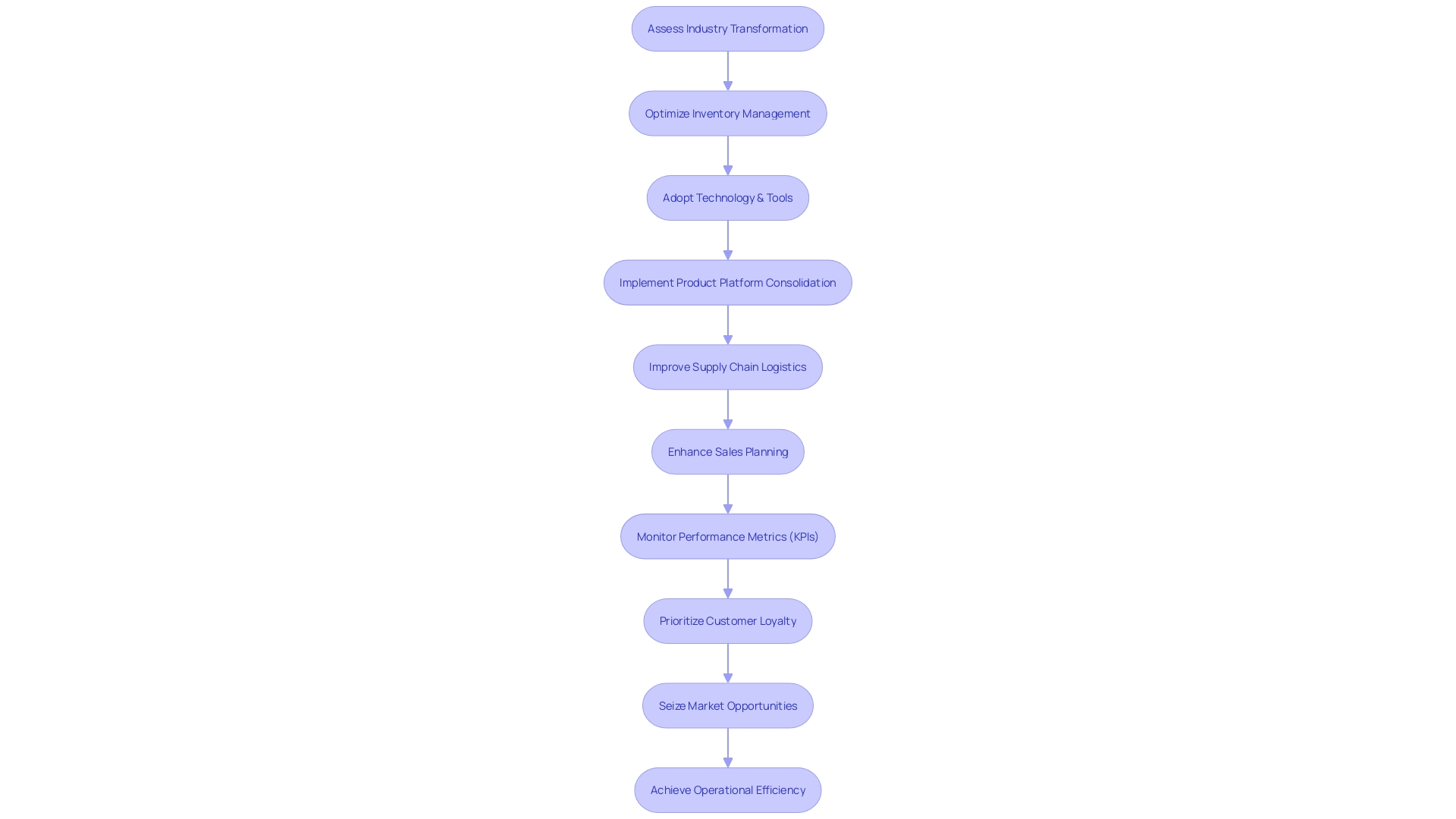
Marketing and Branding for Automotive Businesses
In the fast-paced world of car industry competition out there requires smart marketing and branding strategies similar to what Mazda has done with their 'Move and Be Moved'. It's all about forming a bond by embracing core values that strike a chord with individuals on their life path journey. This branding approach goes beyond selling vehicles – it's about presenting your company as a supportive companion, in life that appreciates and enriches the customers experiences.
To establish your presence in an industry landscape, it is crucial to extensively investigate market analysis that is comprehensive. Gaining a deep understanding of your target audience - from their characteristics to their buying patterns - can assist in developing marketing tactics that cater to their specific needs and preferences. For instance, segmenting your customer base allows for the development of personalized engagements that foster loyalty and differentiate your brand.
The interplay between performance marketing and brand development is akin to a performance. Where one may shine brighter than the other depending on the circumstances like the ongoing pandemic scenario which may prioritize performance marketing over brand building temporarily but the true essence of a brand lies in its narrative and the principles it upholds; these are what truly matter in the long run as they resonate with customers and contribute to enduring success, amidst the unpredictable landscape of our future.
As we approach the year 2024 in the field of marketing, there is a lot of excitement building up as companies prepare to embrace trends such as marketing and AI-powered interactions. The recent VidenGlobe report highlights the importance of adapting and evolving to stay competitive. In the sales sector, for example, this may involve improving website performance and user interface to ensure that potential customers can easily browse and engage with your platform.
Emphasize the interconnected bond between a brand and its culture; an automotive brand mirrors both internal values and customer anticipations.It's crucial to uphold uniformity in your brand representation – encompass everything from logo aesthetics to the language style in your communications – in order to establish a presence. On the other hand, positioning involves defining a special niche in the market that guarantees a unique encounter, for your target demographic.
Recent data underscores the significance of customer loyalty to brands in the field. Buying a car goes beyond a logical choice. It reflects who the buyer is and what they hold dear. Armed with this knowledge car companies can develop marketing plans that resonate with what their customers cherish the most whether its eco friendliness through vehicles or sophistication with high end amenities. Identifying these tendencies is vital in creating a brand that attracts repeat purchases from customers repeatedly.
Financial Planning and Budgeting for Automotive Businesses
Aspiring entrepreneurs looking to thrive in the sector must start with a comprehensive strategic plan as their foundation for success rather than just a mere requirement to tick off a checklist of tasks to accomplish. This detailed roadmap serves as a navigational tool that steers them through the competitive terrain of car dealerships or auto shops by understanding their industry dynamics and adapting to changing consumer preferences such as the rise in demand, for electric vehicles.
Creating a financial plan serves as the driving force behind the growth of your operations.It goes beyond figures—it involves mapping out a path towards steadiness and financial success. These crucial financial checkpoints like managing cash flow and creating budgets indicate the advancements made in your endeavors. When venturing into the industry a deep comprehension of financing choices tax considerations and insurance requirements is not just recommended—it is vital fuel, for powering your financial strategy.
In the world of cars and money intertwining in the scene where changes happen fast like a speeding cars journey down the road. Expert predictions from shots such, as Polestar shine a light into what lies ahead for investors and collaborators alike.
Your understanding of finances is like having a roadmap in the world of owning an automotive enterprise. It guides you through risks and leads you towards opportunities to stay ahead of the curve, in a market driven by innovation and customer needs.
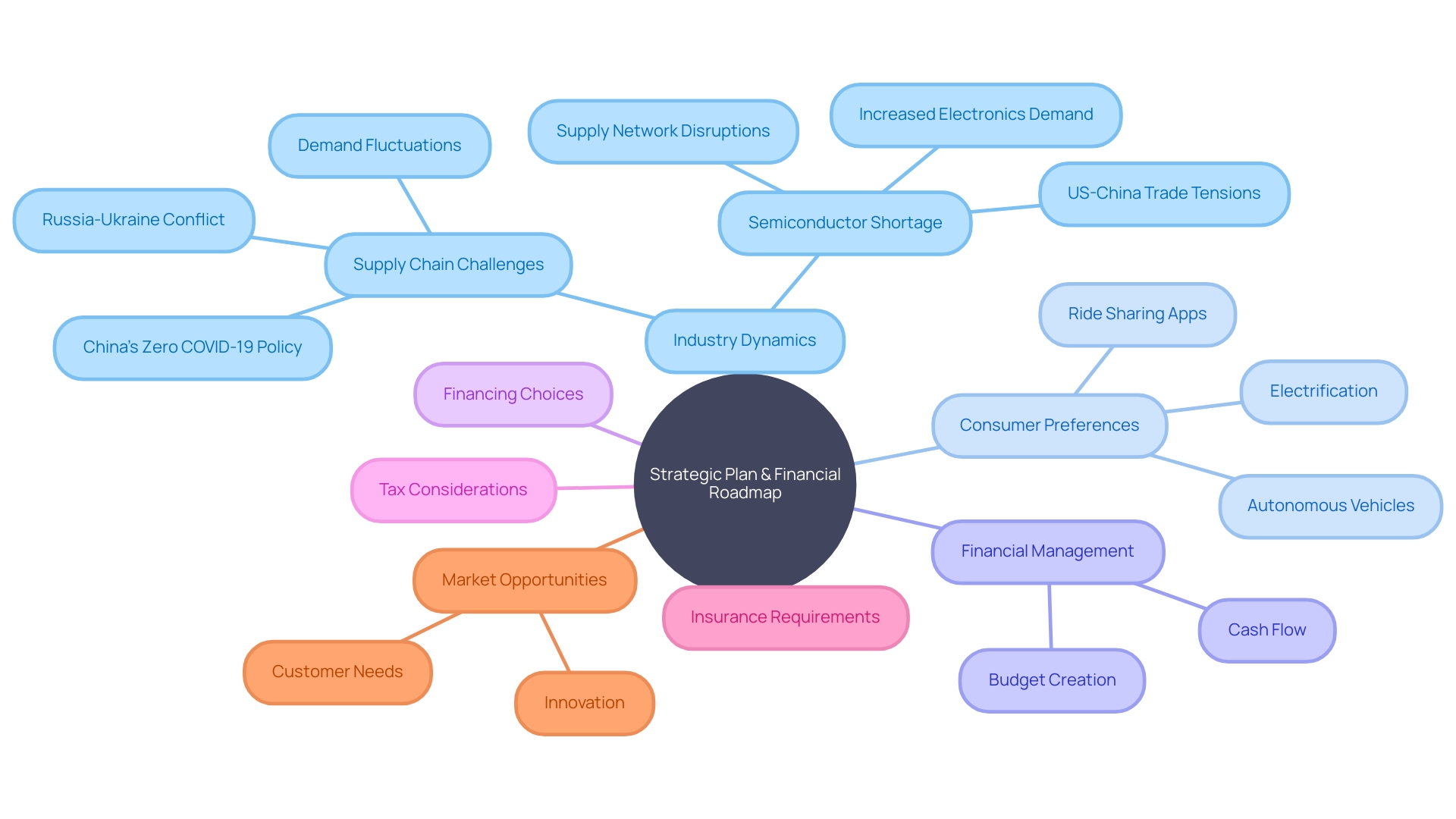
Exit Strategies and Business Valuation
Developing a plan to exit the industry is crucial for car wash and auto repair shop owners, among others. It's important to plan out how you will step away from your enterprise by considering factors such, as your desired exit timeline finding buyers and making sure the transition is seamless. Increasing the worth of your enterprise before you leave is also crucial.
Understanding the structure of your enterprise is crucial when devising an exit plan. Examine the automotive dealership sector to acquire insights into the dynamics of your market. Carry out market analysis not only for learning purposes but also to refine your strategy in line with current trends. For instance, if you notice a growing interest in electric vehicles (EVs), you may need to adjust your plans to offer a variety of EV choices.
Recently in the car sector there is a transition towards embracing an all electric future as observed with major players like General Motors exploring cutting edge battery technologies, for various vehicle models. This change highlights the importance of staying updated on sector advancements when planning your departure strategy.
Moreover the present state of the auto sector is experiencing changes and advancements with developments like self driving cars and electrification gaining momentum Companies are making substantial investments in these areas indicating a potential transformation in the conventional automotive industry practices Given these advancements it's essential now more than ever to align your exit strategy, with industry trends and anticipated market transitions
Given the challenges faced in the supply chain and economic changes happening recently it's clear that the automotive sector is going through a transformation phase at the moment Dealerships are making good profits currently but there might be risks due to economic downturns and rising inflation Having a thought out plan for exiting should take into account these aspects to ensure a favorable future, for your business
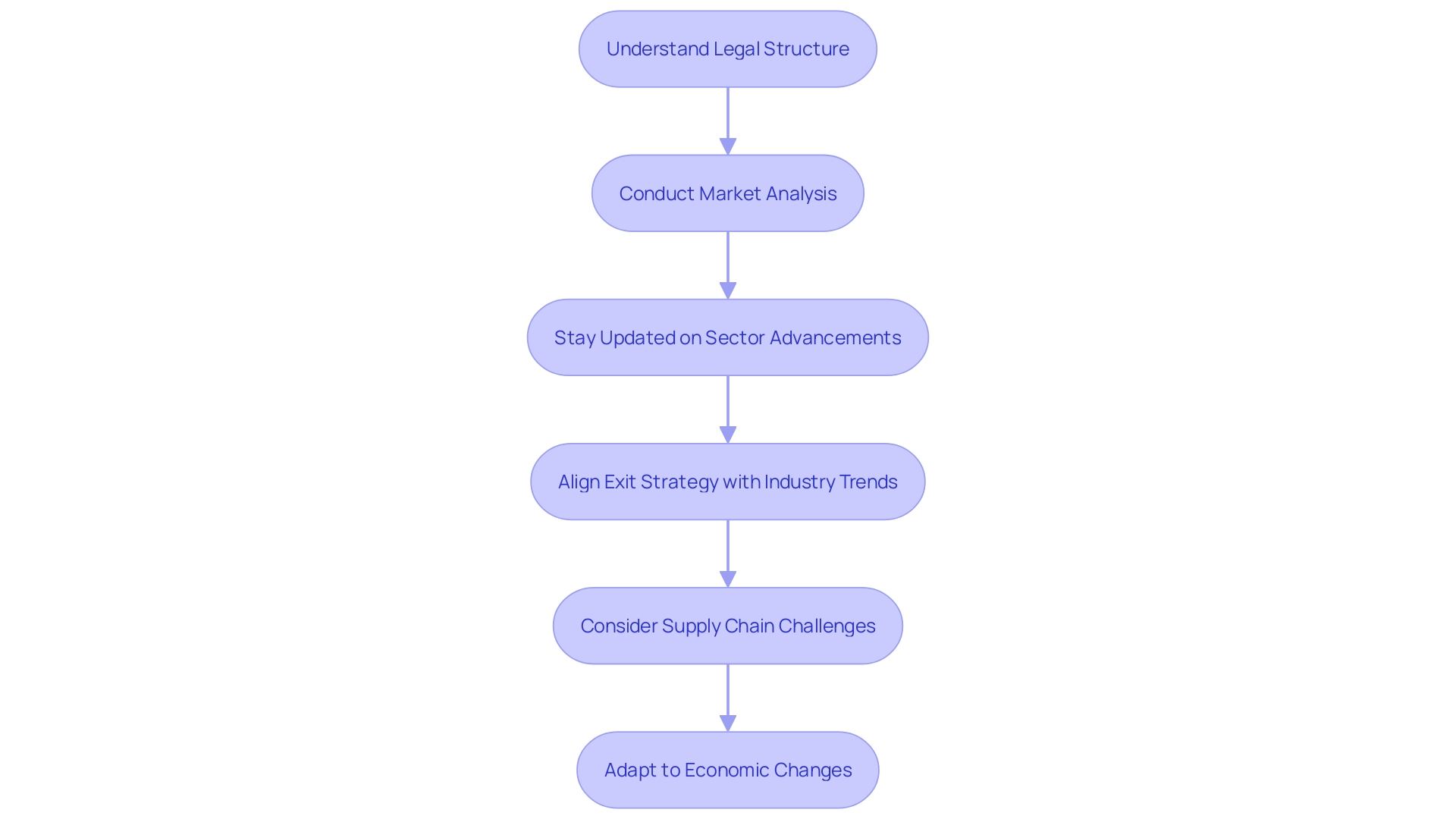
Conclusion
Ultimately the automotive sector presents a landscape with opportunities for expansion. Despite obstacles such as the scarcity of semiconductors and the transition, to vehicles and ride sharing platforms the industry has demonstrated its ability to adapt and thrive.
Understanding the market and dividing it into segments helps in recognizing chances, for growth Being aware of market trends and consumer choices enables companies to tailor their strategies and thrive in a competitive market.
Considering profits is essential in business decision making especially when taking into account factors such as the semiconductor shortage and shifts, in consumer preferences to adapt business strategies to trends effectively.
Assessing the worth of an auto repair shop necessitates an evaluation taking into account the ever changing nature of the industry and adapting traditional valuation approaches accordingly.
Developing strategies, for growth includes adopting technologies establishing collaborations placing emphasis on sustainability and carrying out extensive market analysis.
Improving operations leads to increased profits and customer happiness, for businesses by boosting efficiency and cutting expenses through optimization and the adoption of cutting edge technology.
In the world of business, marketing and branding strategies set companies apart from one another By incorporating beliefs and grasping customer preferences businesses can develop customized marketing approaches that foster lasting customer loyalty.
Creating a financial plan and managing your budget are key aspects of success in business endeavors along with crafting a detailed business strategy and having a good grasp of financial options available, to you.
It's crucial to have a planned exit strategy, in place ensuring a smooth transition and keeping informed about industry advancements are important factors to consider.
By incorporating these tactics into their operations companies can thrive in the sector.




